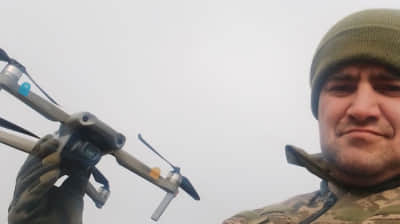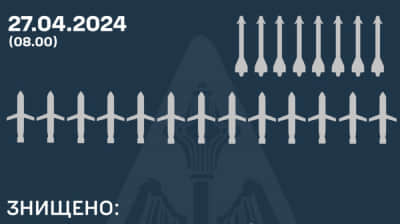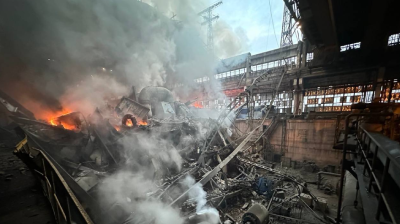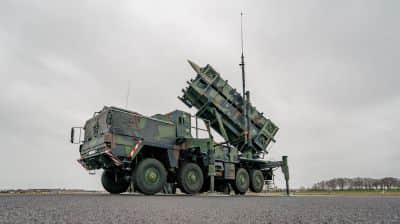"More terrible things happen in torture chambers": Azovstal steelworks defender Nava publishes book about captivity – photo
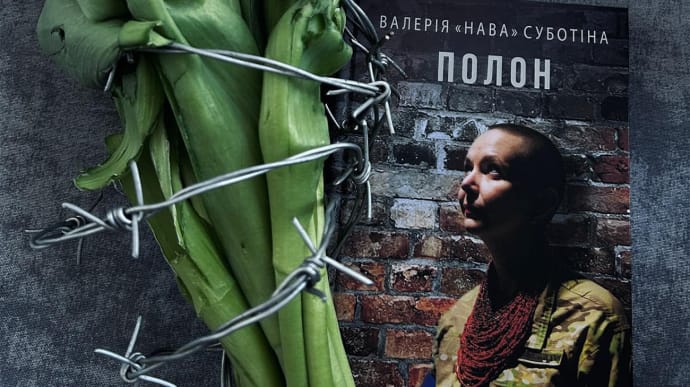
Valeriia Subotina (Karpylenko), a defender of the city of Mariupol and former head of the Azov press service, who goes by the alias Nava, has written a book Polon (lit. Captivity) about the time when she had been held in Russian captivity.
Valeriia used to live in Mariupol with her beloved Andrii Subotin, a border guard officer. Subotina initially worked in the press service of Azov, then headed the press service of the Donetsk border guard detachment, and re-joined Azov regiment at the beginning of Russia's full-scale invasion of Ukraine.
The servicewoman reported on the city's defence and wrote texts about the heroism of Azovstal's defenders and the terrible conditions they were in.
Valeriia and Andrii got married at the besieged Azovstall, with rings made of foil. Three days later, Valeriia's beloved was killed.

After leaving Azovstal, Valeriia spent almost a year in captivity: first in Olenivka, then in Russia's Taganrog. Valeriia's grandmother, who brought her up, died in Mariupol during this time.
Almost a year after being swapped during a prisoners-of-war exchange, Nava's book dubbed Polon (lit. Captivity) has now been published. The Mariupol defender told Ukrainska Pravda. Zhyttia about the book, in which she described Russian torture chambers as well as life after captivity and the struggle for her brothers-in-arms.
Valeriia Subotina (Karpylenko) started thinking about writing a book while she was still in captivity, so she tried to remember everything that happened there.
Quote: "We had no paper, pens, or pencils, especially in Taganrog. But I tried to remember everything in detail," Valeriia says.
Details: In the book, she describes her life a lot, including her childhood and meeting her beloved and happy family in Mariupol. Valeriia explained how Azov became her family.
Subotina’s book mentioned Russian soldiers, guards, and security officers from Russia's Federal Security Service (FSB) and the Federal Penitentiary Service (FPS) who abused, tortured, beat, and harassed the prisoners of war...
At the same time, Valeriia wrote about joking with her sisters-in-arms, "yoga" in a cramped cell, and how the women in captivity supported each other.
Quote: "What happened to me was not the worst thing. Unfortunately, even more horrible things happen in torture chambers. It's scary to even think about it, but no matter how much it hurts, we have to," Valeriia says.
In one of the chapters, Valeriia described how she worked in the kitchen: they baked bread in poor sanitary conditions and used low-quality flour. Nevertheless, the Azovstal defenders tried to bake the best bread for their captive brothers-in-arms.
The Russians fed the POWs very poorly, serving them porridge with a halibut fish with entrails in it for lunch. Nava recalls that in captivity, they were always thinking about food.
"In fact, it was only recently that I baked bread for the first time. I distributed it to some former prisoners of war at a rally and saw the reaction of the guys and ladies to this bread, as they knew its price and remembered our work at the bakery [in captivity – ed.]," says Valeriia.

For reference: Valeriia was brought back to Ukraine as part of the prisoners-of-war swap on 10 April 2023.
Valeriia is now a retired officer in the Armed Forces of Ukraine. After coming back from captivity, she was a communications advisor to the commander of Ukraine's Special Operations Forces, and now she continues the information warfare in a different way.
"My main task now is to work at the YOUkraine hub. This is the first hub for former prisoners of war in Ukraine, created by former prisoners of war. Here, we meet, discuss our concerns and support each other," says Valeriia.
The book about captivity is also part of the information campaign. Soon, Valeriia plans to write the next one (Azovstal. Steel Press Service), which will tell the story of her fellow brothers-in-arms.
Support UP or become our patron!


